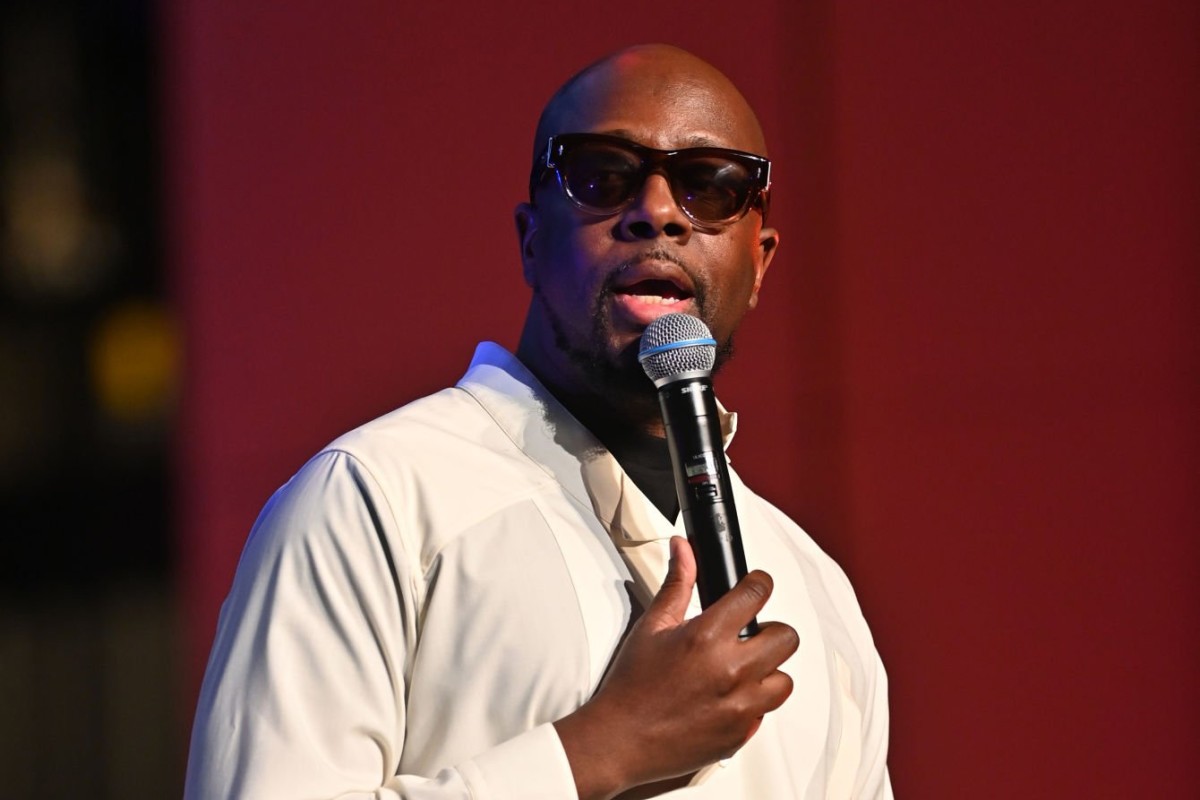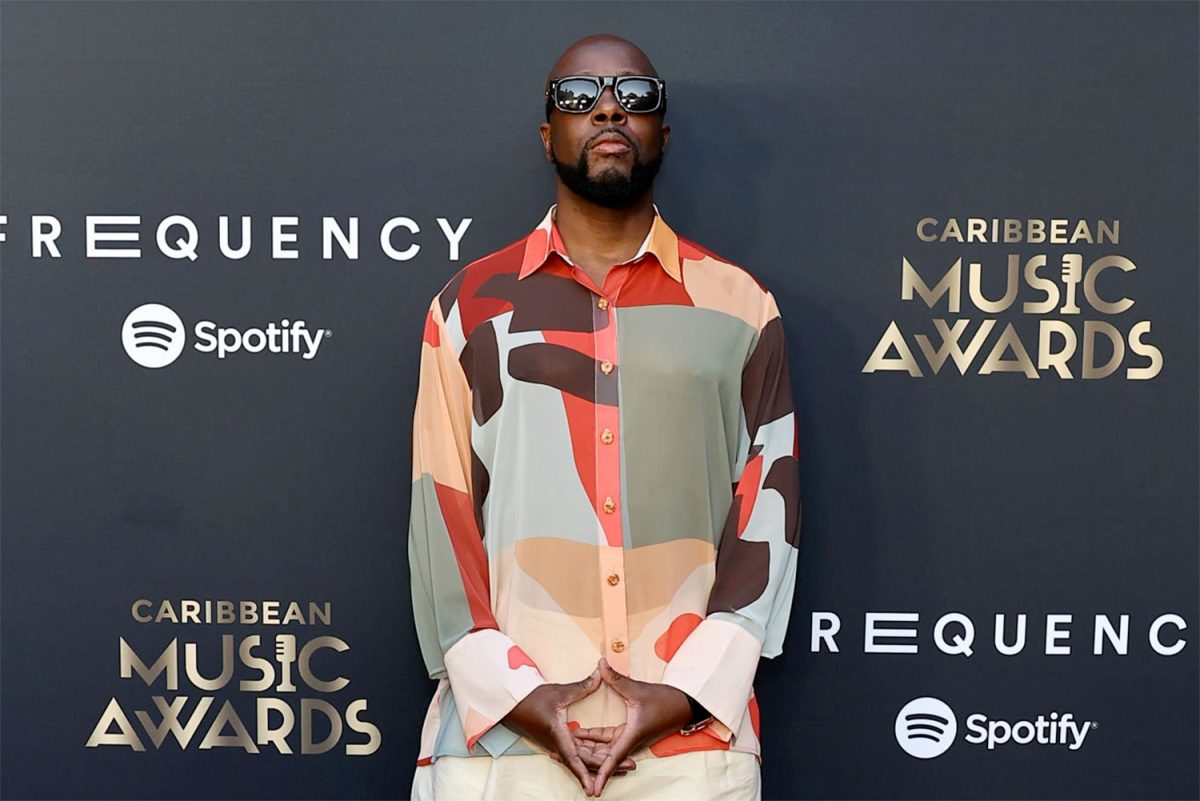Wyclef Jean Drops Insightful Keynote About Music Ownership At IMC

Island Music Conference (IMC) attendees in Kingston, Jamaica, got an earful of genuine insights from none other than Wyclef Jean during his recent keynote speech. The Haitian musician, known for his work with The Fugees and his solo career, didn’t shy away from sharing his personal journey and financial successes, all while emphasizing the importance of music ownership for artists on the island.
“There’s going to be a time when you’re gonna be Uncle Wyclef’s age and I just want when you are 54 that you still have all your cars, your mansions, your real estate and everything,” he said.
Jean, who migrated to the US at age 10, shared his personal story of overcoming his father’s skepticism about pursuing music professionally and stressed the need for artists to understand the value of their work.
“The real power in the music business is ownership,” he outlined.
“When I told my daddy, when he asked what you’re going to be because when you’re from the Caribbean and you go foreign, you’re either going to be a doctor, lawyer, engineer. So I tell mi daddy mi ago be a musician but he said I’m going to die broke,” Wyclef shared.
“It’s not about you having money, it’s about the generations to come so that you set up something that no matter what happens, your children, their grandchildren, this is where we need to go now, there is no where else to go. That’s it. Inspired by Bob Marley what does he show us, he showed us the power of generational wealth.”
He cited his song Maria Maria, written for Carlos Santana, as a practical example of how music ownership can translate into financial security. In February 2000, before the song became a commercial success, it won a Grammy Award for Best Pop Performance by a Duo or Group with Vocals, one of the eight awards Santana accrued for that night.
“I write it for Carlos Santana, now you see Carlos Santana at the Grammys, and he wins an award. I’m not at the Grammys, I’m home, I’m chill and I’m eating rice but my Grammy gets delivered to me; this is real power,” he noted.
“Now let’s go a step further, when I get this song, am I just featured on the song or do I own the song? What does that mean and what is my ownership in the song? In this song, I own over 70%.”
He further elaborated on the concept of synchronization rights, which allow artists to earn royalties whenever their music is used in commercials, movies, or other media.
“Let’s talk about the power of the sync, when you own something, anybody in the world wants to use it dem haffi give you a cheque for it, dem wah use it for a commercial, dem wah use it for superbowl, anything, this is called the power of the sync, that’s why you shouldn’t give anything away. You could do something today, but it doesn’t work today, it’s ok, don’t give it away,” he warned.
“In America, the Superbowl is the biggest thing in the world, so in the Super Bowl when Rihanna does Wild Thoughts, when Shakira does Hips Don’t Lie, the Super Bowl gotta call my manager Madeline Nelson and now we have to clear this record. If I don’t clear it, it can’t be performed, this is real power, this is called ownership so now your negotiation is directly with the Superbowl,” he shared.
“So now when you see that song stream a billion copies what that means is that my daughter is good,” he emphasized.
Jean also cautioned artists against prioritizing fame over business acumen.
“I don’t care about being on TV with billions of people,” he said. “That’s not the first thing that is important for me, the first thing that is important to me is to make sure that I’m in charge of the situation, that’s ownership and remember I said something might not work once but don’t give it away.”
He encouraged artists to explore various revenue streams for their music, including movie soundtracks, commercials, and advertisements.
To illustrate, he shared an anecdote about his song Dance Like This, which initially failed to gain traction but was later reworked as Shakira’s Hips Don’t Lie. “I got a call from Clive Davis and he said that they are doing a movie called Dirty Dancing and in this movie we are looking for a song and remember that this was two years before Shakira’s Hip Don’t Lie and the song that I wrote for the artist Claudette Ortiz is called Dance Like This.”
“This is why you have to focus on multiple avenues for your music, you can’t just look on one. You have to look at the game like a 360,” he explained. “You gotta be like Mac, can I get this song in a commercial. How do I get this music in this movie? How do I get this music in this ad? Clive Davis was like I don’t think this song will pop and we put it in the movie and it did not pop and then two years later this song broke Michael Jackson and Elvis Presley’s record as one of the biggest songs ever.”
“You have to have catalogues of music, you can’t just be doing music to satisfy fans, you also have to do songs to satisfy your business of the future so in order to do that you gotta look for different opportunities and continue to have your songs all over the place,” he advised.
He shared that he earned from a blockbuster Mission Impossible movie, using the Fugees’ 1996 hit song Ready Or Not from their second studio album, The Score, in the movie’s trailer. “It’s just millions of dollars just for the sync. This isn’t even gonna be in the movie, just for the sync, it’s millions of dollars from a 30 second trailer you could be earning thousands in hundreds of thousands of dollars,” he said.
“They will just use music from the trailer to get people into the movie,” he added.
Driving home the potential of music synchronization, Jean revealed that he has over 30,000 syncs across various media, generating ongoing passive income.
“I don’t have to wake up outta my bed and tek up and instrument again ever,” he said. “Protect your sync, protect your publishing rights.”

